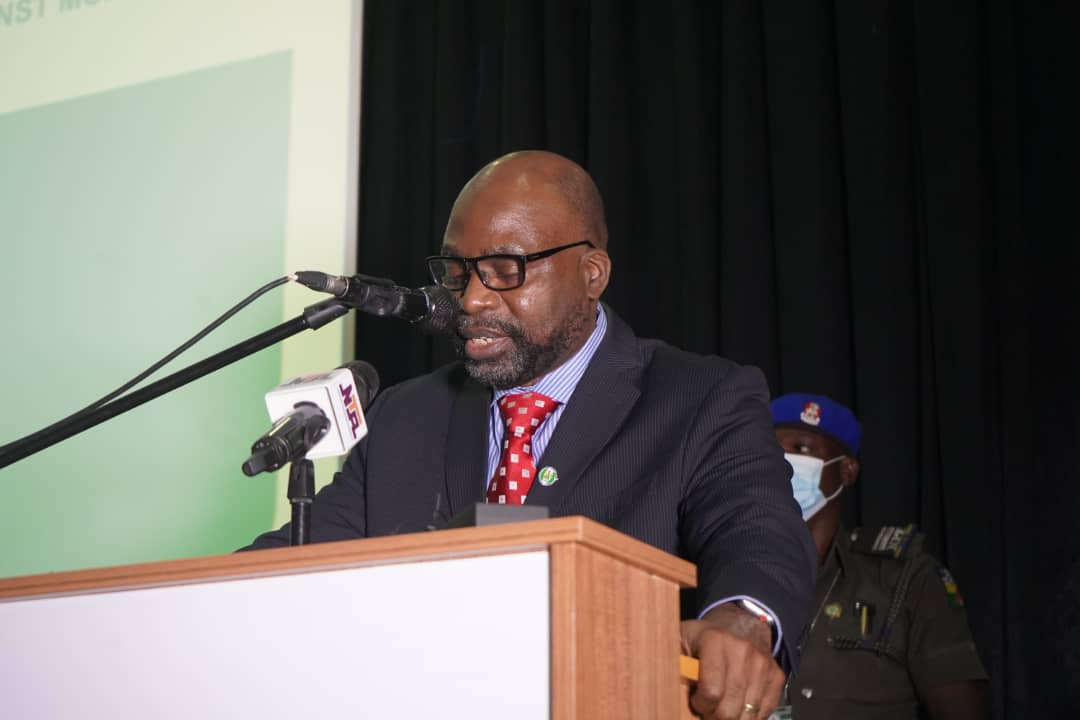The Chairman of the Independent Corrupt Practices and Other Related Offences Commission (ICPC), Prof. Bolaji Owasanoye, SAN, has revealed that a major part of the $80 billion lost annually from Africa to Illicit Financial Flows (IFFs) was from Nigeria.
He made the revelation recently at the National Annual Public Lecture Series of the Inter-Government Action Group Against Money Laundering in West Africa (GIABA) which held at Nile University, Abuja.
Prof. Owasanoye, who delivered a paper titled, “Reflections on the Impact of Corruption and Financial Crimes on Regional Development in West Africa: The Way Forward”, described corruption as a daunting and existential challenge for many countries in the West African sub-region especially Nigeria given the size of its economy.
The ICPC Chairman observed that corruption and its subsets especially economic and financial crimes were widespread in Nigeria.
He stated that large-scale official corruption was becoming rife across the sub-region adding that the objective of most criminal ventures was to generate income and enjoy the fruits of criminality. However, if the income is connected to crime or wrongdoing, it would be rendered useless to the criminals.
Speaking further, Owasanoye noted that several people implicated in corruption and economic and financial crimes muzzle their ways into elected or appointed positions in West Africa in order to use official powers to frustrate law enforcement, or fraudulently exonerate themselves by manipulating state institutions.
He also highlighted manifestations of organised crimes in West Africa to include oil bunkering and crude oil theft, bulk smuggling of illegally earned money by owners of private jets, smuggling of substandard goods across borders, piracy in the Gulf of Guinea, human trafficking between and amongst member countries, arms smuggling with the Libyan connections, terrorist financing using ’hawala’ network, cross-border kidnapping and kidnapping for ransom etc.
Looking at the way forward, the ICPC boss stated that West Africa needs to pursue a multi-track strategy to surmount the daunting challenges posed by economic and financial crimes stressing that, “the fortune of generations yet unborn relies on the actions that we take today”.
Earlier in his remarks, the Director General of GIABA, Justice Kimelabalou Aba, maintained that money laundering and terrorist financing constitute major obstacles to human development and present significant obstacles to equal economic and social opportunities, especially for honest and hard-working people.
Justice Aba who was represented by the head of Nigeria Financial Intelligence Unit, Mr. Modibbo Hamman Tukur, who also doubles as GIABA National Correspondent stated that IFFs and money laundering crimes have adversely impacted national security and development in Nigeria and many other countries.
He pointed out that corruption has also fuelled the destruction of hard-earned reputations of individuals, corporate organizations and countries.
Aba highlighted some studies that have been conducted by GIABA to include Trafficking in Small Arms and Light Weapons (SALW), Money Laundering and Insurgency, Tax Fraud and Money Laundering in West Africa etc. He added thatreports of the studies provide insight into how criminals carry out money laundering terrorist financing in our countries and the vulnerabilities they exploit in committing these crimes.
To stem IFFs and money laundering, he said that a dynamic, collective concerted, coordinated and collaborative efforts at all levels was needed to effectively counter these criminals, adding that criminals often end up outsmarting themselves.
The Vice-Chancellor of Nile University of Nigeria, Prof. Usman Nuri Aras, in his welcome address disclosed that money laundering and terrorism financing cripples the economy and undermines democracy.
He also added that money laundering provides the fuel for drug dealers, terrorists, illegal arms dealers, corrupt public officials and others to operate and expand their criminal enterprises.
He noted that the crime of money laundering and terrorism financing had weakened and failed many financial institutions due to non-compliance with money laundering and financial laws, while calling on stakeholders to join hands in combatting the menace.

